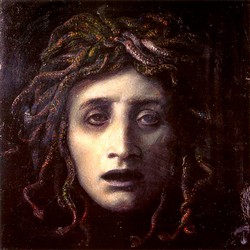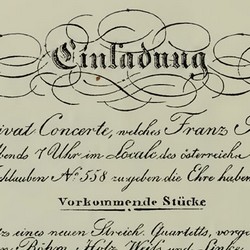- Details

The Club Wagner Barcelona regularly organizes (of course) Wagner-related activities for its members. But, from time to time, other composers are present, and I was invited a few weeks ago to talk about Schubert's Winterreise. I referred in the introduction to the difficult way of the cycle until it set in the repertoire.
- Details

"As fair as day in blaze of noon, as night mysterious." So the poet describes the distant and unattainable loved one in the verses of the song we're listening today. The author is Nikolai Minski, a respected Belarusian poet, also known for his work as a translator of poets such as Byron, Shelley, or Verlaine, or works such as The Iliad. In 1887, Minsky published a cycle of eight poems, From the oriental, the last one of which is As fair as day in blaze of noon.
- Details

In 1843 Franz Liszt published a collection of six songs including two with poems by Heinrich Heine: Die Loreley and Im Rhein, im schönen Strome. The next year, he published three more Lieder from Heine's verses: Du bist wie eine Blume, Vergiftet sind meine Lieder and Morgen steh' ich auf. Finally, in 1860 he published a compilation of his Lieder [...]
- Details

On 26 March 1828, Franz Schubert gave his only public concert. That's to say, public because the only requirement to attend it was to buy a ticket, as opposed to the private concerts in somebody's house, limited to those people invited by the host (and invitations were much requested if Schubert was expected to play).
- Details

Three Winterreise. Same day. At the same time. In Barcelona. When this article is published, this phenomenon will have just happened. Well, I muss admit it wasn't exactly at the same time but, if everyone was on time, one Gute Nacht and two Das Wirtshaus were heard simultaneously in Barcelona.













